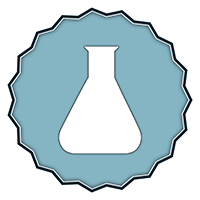Written by: Laura Anderson Fit Coach
Alcohol addiction is an actual disease. It can cause a wide range of other health problems, such as heart and liver diseases, strokes, aggression, congenital disabilities, cancer, high blood pressure, etc.
Another word for alcohol addiction is alcoholism. Alcohol is called an addiction for a reason. Despite the stigma of alcoholism, it needs to be recognized as what doctors call it. That is a ‘disease’. Once people start taking alcohol, it becomes hard to stop. A person with alcoholism will experience physical symptoms from withdrawing from alcohol, such as nausea, hallucinations, excess sweating, shaking, anxiety, sleep problems, etc., And causes cravings that become harder to resist every time the person consumes the drink. It is due to the changes it causes in how the brain functions.
How does alcohol change the brain?
Dopamine is known as a happy hormone. Our body naturally produces it in a specific controlled amount. Even small amounts of alcohol can produce it, but in a much higher amount than what our brain naturally makes. People usually come back to alcohol for dopamine, but the constant high amounts of dopamine are overwhelming. It causes your brain to rewrite itself as a protective measure from all the dopamine. It causes the person to consume more and more alcohol for dopamine. This results in an addiction that gets worse and worse while the brain keeps changing.
Ways to recover from alcohol addiction
Alcohol addiction can be challenging to overcome. But not impossible. The main requirement to recover is for the person to want to get better. No one can force it. Once they are certain, they need to maintain a lifetime commitment.
Starting the recovery process will be hard. The withdrawal symptoms can vary from person to person but will gradually improve after three days. Some steps to help recover are:
1) Rehab
Rehabs are facilities where trained professionals help people overcome their addictions. They can educate you on mental illness as well as help the patient with those withdrawal symptoms.
2) Distractions
Remind yourself why you decided to stop alcohol, and obtain a healthy alternative to drinking. Maintaining a schedule for hobbies can help. Exercising is a good alternative. It naturally releases dopamine and can keep both your mind and body healthy. Getting a fit coach is an option. If not that, then scheduling thirty minutes is an alternative as it has been proven to improve the brain. Other options could be spending time with family and friends, knitting, baking, watching movies, music, etc. Even chewing gum helps remove alcohol cravings.
3) Support Group
They are a small group of people that provides a safe place for recovering addicts. As long as they provide emotional support, then it doesn’t matter which support group you join. It is an excellent place to share addiction experiences, make friends, and encourage a healthy lifestyle.
4) Recognize Your Triggers
Triggers are anything that makes you want to drink alcohol, or simply reminds you of alcohol. People recovering from addiction have their brains wired to seek out the addiction. So, it would be best to avoid anything that reminds you of the feeling of consuming alcohol.
By knowing what your triggers are, you can avoid them, and keep yourself from relapsing.
5) Celebrating Milestones
Becoming sober is not easy; any recovering addict will tell you that. So, it is important to remind and celebrate your accomplishments in remaining sober. No matter how small or big they may be. It is a significant accomplishment for recovering addicts.
If you’re going to an AA group, they will give small reward badges for being sober for a month or two months until you reach a year. After the year passes, going to restaurants with alcohol won’t seem as tempting anymore. Life will slowly go back to normal.
Conclusion
Alcoholism is a global problem that stems from culture. The side effects are too significant and not worth the lifelong risks it accompanies. That doesn’t mean that there is shame in getting help. It won’t be easy at first but remember you’re doing this for you. The small victories, managing to make it through another day, and finding alternatives to divert your mind, are all possible because you’re capable of making it possible. Hope this article helps you. Freeing yourself from an addiction isn’t easy, but it’s worth it, and you’ll thank yourself.


